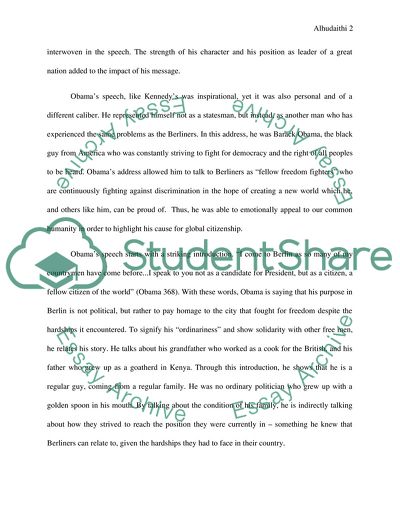Cite this document
(Address to the People of Berlin by Barack Obama: A Rhetorical Analysis Essay, n.d.)
Address to the People of Berlin by Barack Obama: A Rhetorical Analysis Essay. https://studentshare.org/politics/1759224-american-rhetoric
Address to the People of Berlin by Barack Obama: A Rhetorical Analysis Essay. https://studentshare.org/politics/1759224-american-rhetoric
(Address to the People of Berlin by Barack Obama: A Rhetorical Analysis Essay)
Address to the People of Berlin by Barack Obama: A Rhetorical Analysis Essay. https://studentshare.org/politics/1759224-american-rhetoric.
Address to the People of Berlin by Barack Obama: A Rhetorical Analysis Essay. https://studentshare.org/politics/1759224-american-rhetoric.
“Address to the People of Berlin by Barack Obama: A Rhetorical Analysis Essay”. https://studentshare.org/politics/1759224-american-rhetoric.


